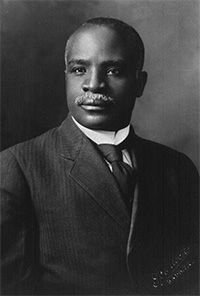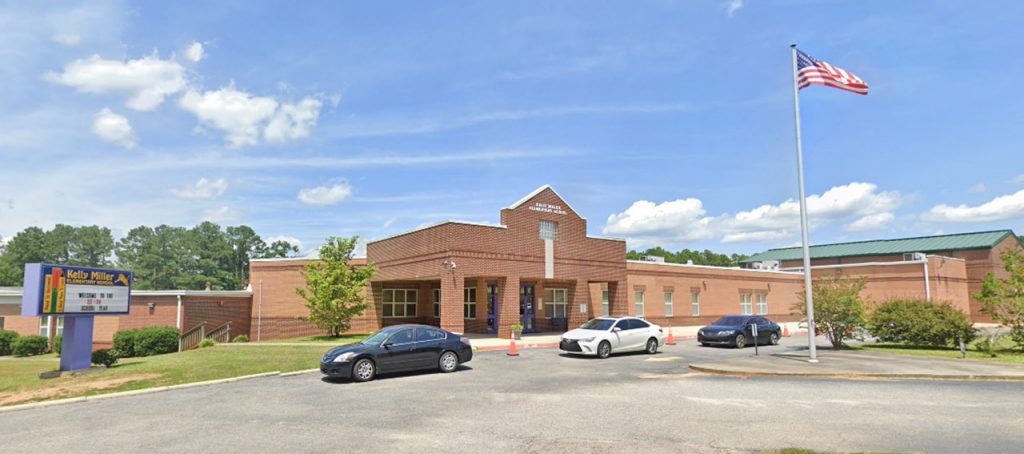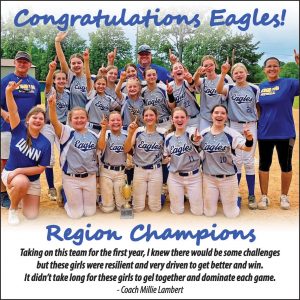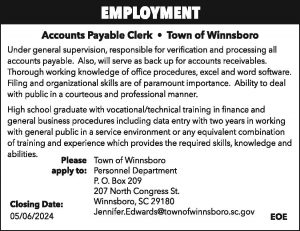Excerpt from research paper by Fairfield Central graduate Lamar Richards, now a graduate student at Johns Hopkins University.
FAIRFIELD COUNTY – A young man named Kelly Miller arrived at The Johns Hopkins University in 1887, to begin graduate studies in mathematics.
Just 11 years after its founding, Hopkins had already acquired an excellent academic reputation, and Miller had been attracted to Hopkins by the eminent mathematician and faculty member Simon Newcomb. What made Kelly Miller noteworthy, then and now, is the fact that he was the first African-American student to enroll at Hopkins.

Born in 1863 in the Greenbrier area, Miller was one of 10 children; his father was a free man and his mother was a former slave. After the Civil War, his family became tenant farmers in Fairfield, and Miller received his early education from Northern teachers who had come south after the war. In later years, he referred to these teachers as “a band of heroes … who sowed the seed of intelligence in the soil of ignorance.”
In 1878, Miller was admitted to the Fairfield Institute, a secondary school founded by the Presbyterian Church, and two years later, with a train ticket and a scholarship provided by the New England Missionary Society, Miller arrived in Washington, D.C., to enroll at Howard University.
While a student at Howard, Miller obtained a part-time job with the government that provided an introduction to Simon Newcomb, a professor of mathematics at Johns Hopkins University. Newcomb recognized the young man’s ability and determination and recommended tutors to prepare Miller for advanced study. An African-American with a college degree did not have unlimited opportunities in the 1880s, and upon graduation from Howard in 1884, Miller worked at various jobs. He then became interested in Johns Hopkins and approached Newcomb regarding admission.
Newcomb agreed to broach the subject with President Daniel Coit Gilman, and, while there are no records to document the discussion, Gilman and the trustees apparently agreed that Miller represented an exceptional case. Miller later recalled learning that during the discussion one trustee had pointed to the founder’s Quaker background and his stipulation that neither race nor color should bar anyone from admission to the hospital or the university.
In 1887, Miller enrolled in graduate school at Hopkins, and was the first black student to enroll at the school. Gilman assured Miller that all facilities of the university were open to him and the outcome of his Hopkins experience remained in his hands.
Miller later stated that his reception by the other students was one of “cool, calculated civility.” While he met with no overt racism, neither was he welcomed into the camaraderie of his fellow students.
Miller remained at Hopkins for two years and left without earning a degree after an economic crisis forced Johns Hopkins to raise tuition 25 percent.
Less than a year after his leaving Hopkins, Gilman and Newcomb recommended Miller for a faculty position at Howard. Miller returned to Howard and remained there for the rest of his career.
In 1894, he married Annie May Butler, a teacher at the Baltimore Normal School. Miller went on to receive a Master of Arts in Mathematics in 1901 and a law degree in 1903, both from Howard University.
From 1895 to 1907, Miller was professor of mathematics and sociology at Howard, but he taught sociology exclusively after that, serving from 1915 to 1925 as head of the new sociology department.
Noted for his brilliant mind, Miller rapidly became a major figure in the life of Howard University. In 1907 he was appointed dean of the College of Arts and Sciences. During his twelve-year deanship the college grew dramatically, as the old classical curriculum was modernized and new courses in the natural sciences and the social sciences were added. Miller’s recruiting tours through the South and Middle Atlantic states were so successful that the enrollment increased from 75 undergraduates in 1907 to 243 undergraduates in 1911.
Miller became a tireless advocate of education for African-Americans, and he spent many summers traveling the country urging young people to further their education. He wrote numerous books and articles, mostly on the black experience in America, including education, slavery, religion and vocation. He and his wife raised five children, all of whom went on to successful careers in various fields.

The years after World War I were difficult ones for Miller. J. Stanley Durkee, the last of Howard’s white presidents, was appointed in 1918 and set out to curtail the baronial power of the deans by building a new central administration. Miller, a conspicuously powerful dean, was demoted in 1919 to dean of a new junior college, which was later abolished in 1925. A leader in the movement to have a black president of Howard, Miller was a perennial favorite of the alumni but was never selected. Although his influence at Howard declined significantly by the late 1920s through his retirement in 1934, Miller’s stature as a commentator on race relations and politics remained high. He had become alarmed by the vast social changes stimulated by World War I and was seen as increasingly conservative. He opposed the widespread abandonment of farming by black Americans and warned that the mass migration to cities would be socially and culturally destructive. At a time when many younger blacks regarded labor unions as progressive forces, Miller was skeptical of them, citing their history of persistent racial discrimination.
Miller remained an old-fashioned American patriot despite the nation’s many disappointing failures to extend democracy to black Americans. As a weekly columnist in the black press, Miller’s views were published in more than one hundred newspapers. By 1923 it was estimated that his columns reached half a million readers.
Miller died at his home on the campus of Howard University in December, 1939, at the age of 76. Kelly Miller Middle School, which is located a short distance from the Miller family farm in Greenbrier, is named for Miller.












